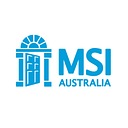Speech by Swathy Santhakumar | The Road to Abortion Equity
The Federal Senate has established an Inquiry into universal access to reproductive healthcare. The Inquiry was called because the government has acknowledged we have a crisis of sexual and reproductive health access.
On Wednesday 9 November 2022, we hosted an online forum to explore what the inquiry terms mean, how it applies in practice and provided a submission template which you can download here to assist people in writing their own.
Swathy Santhakumar gave the following speech at our webinar, which you can watch here.
I would like to start by acknowledging the traditional owners of the land on which I’m joining from, the Turrbal and Jagera people, and pay my respect to elders past, present and emerging.
To increase access to abortion care, we need to bolster our future healthcare workforce.
We need to reshape medical degrees.
Empowering students to take an interest in sexual and reproductive health shouldn’t begin after medical school.
I’m at the end of my first year in medical school.
What I have found is whilst many of us come in with preconceived notions about specialties we want to go into, most of us are impressionable, open to try other areas to see if we connect with them.
We want to learn how to become the best doctors we can be so we need opportunities to experience different areas of medicine, through lectures with experts in the areas and options to complete work experience in clinics with experienced abortion providers.
We already know that abortion education, much like abortion provision, is a lottery.
The amount of exposure you get is dependent on your university, on the people writing your curriculum, and on the hospitals that you complete placements in.
Even if you are placed at a hospital which provides abortions, there is no guarantee you will be involved in any part of the process of one if you wish to.
This means that junior doctors are going out into the workforce with really patchy knowledge, if any, about abortion provision.
Even if we don’t end up becoming abortion providers ourselves, we have an obligation to patients who seek out this procedure.
We need to be informed about pregnancy options so that we can pass on this information to our future patients and ensure that they are fully informed and get the care they need, even if we’re not the ones directly providing it.
The future healthcare workforce must be equipped to provide universal access.
To do this, we need to make some changes to how we engage with medical students.
In the context of universal access to abortion, my three asks are:
- Abortion education needs to be a mandatory part of every Australian medical school’s curriculum. This includes for people who don’t want to become abortion providers themselves, but who need to understand the information to correctly advise future patients of their pregnancy options and to be able to refer on to abortion providers.
- Government needs to invest in abortion education, such as additional training facilities and the facilitation of partnerships with community providers to allow students to immerse themselves in the field and speak to sexual and reproductive healthcare experts. This would really give medical students much needed clinical exposure.
- We need investment in clinical guidelines and medical publications that normalise abortion and reduce abortion stigma. Abortion is healthcare, yet, abortion is often framed in medical degrees as an ethical issue. Framing it like this takes away from the fact that abortion is written into health law and it needs to be introduced from a medical context instead of an ethical context. Greater access to clinical guidelines and other medical texts will help medical schools normalise abortion care within healthcare.
All of these asks could also be beneficial for people training as nurses, midwives and Aboriginal and Torres Strait Islander health workers.
My relatively short time at medical school has shown me just how capable, and excited, medical students are to become doctors.
Many of us are keen to provide sexual and reproductive health, but any opportunity to train is much further down the road.
In a healthcare workforce crisis, it is time to invest in pre-service medical education so that we can provide abortion care after we graduate from our degrees.
Swathy Santhakumar is first year medical student in Australia.
She completed her honours research in 2020 looking at the coverage of abortion care content in medical schools across Australia.
Having worked in the healthcare space for over 4 years in different capacities, she wants to encourage more young people to engage in improving healthcare access and delivery. Follow Swathy on Twitter.
